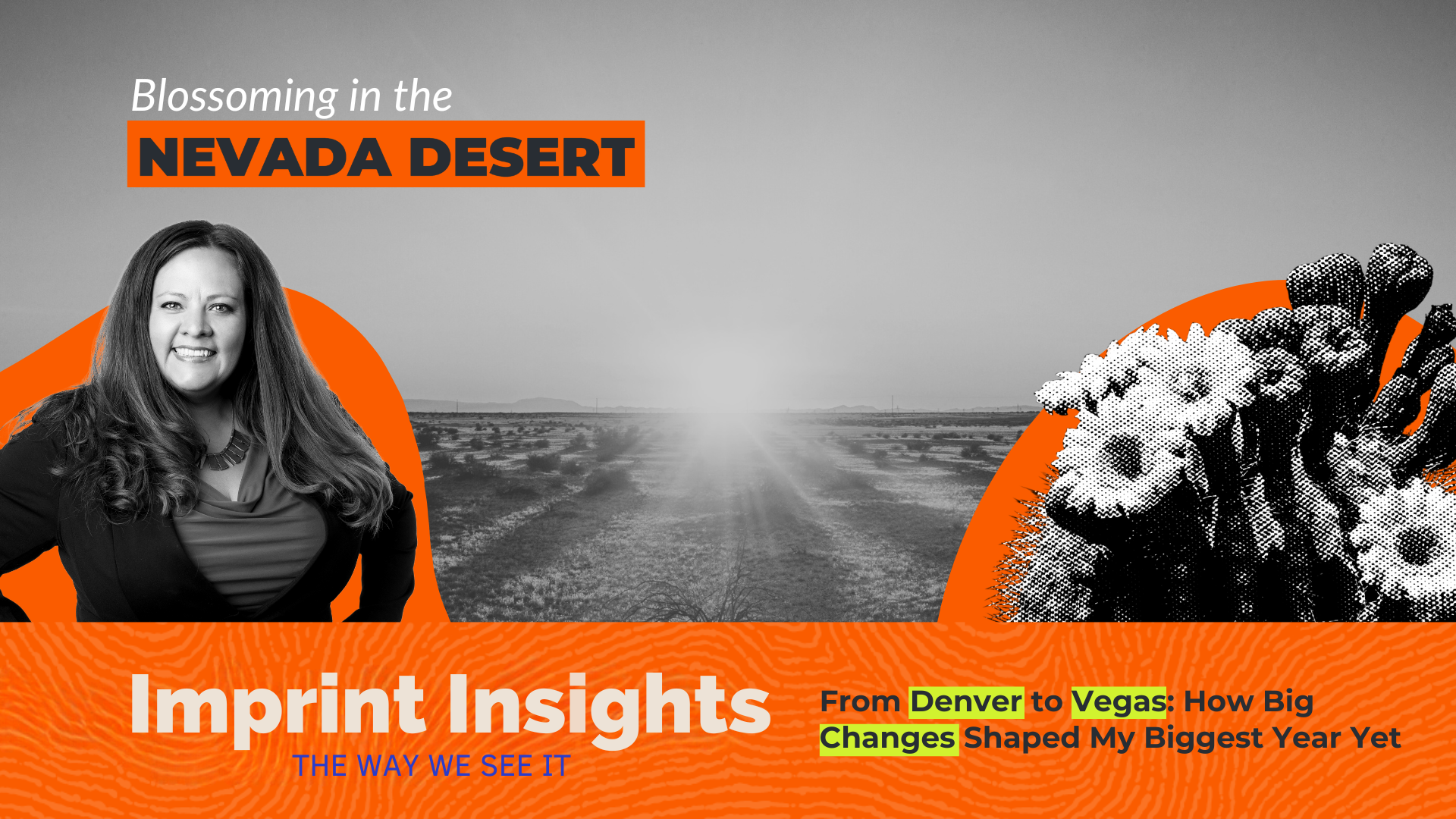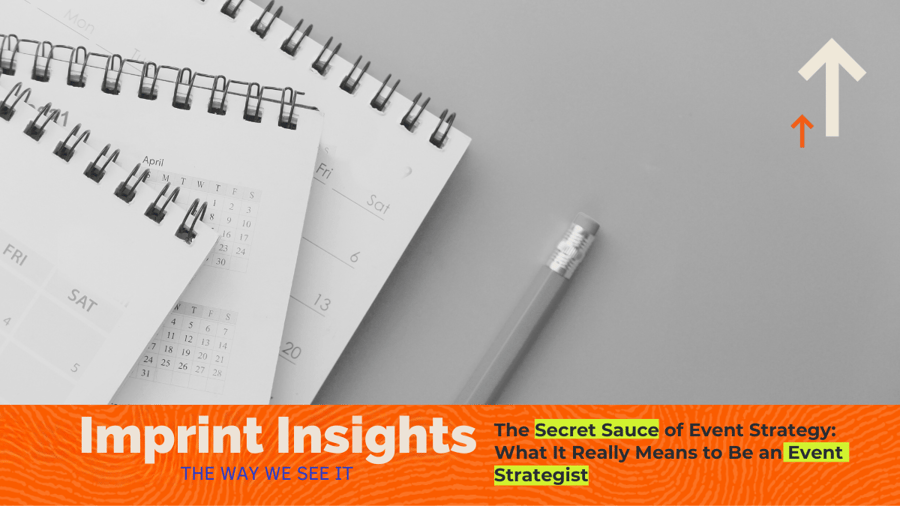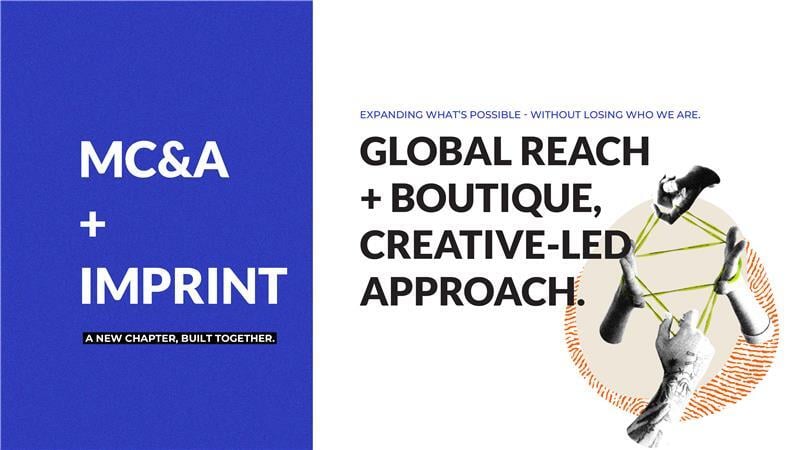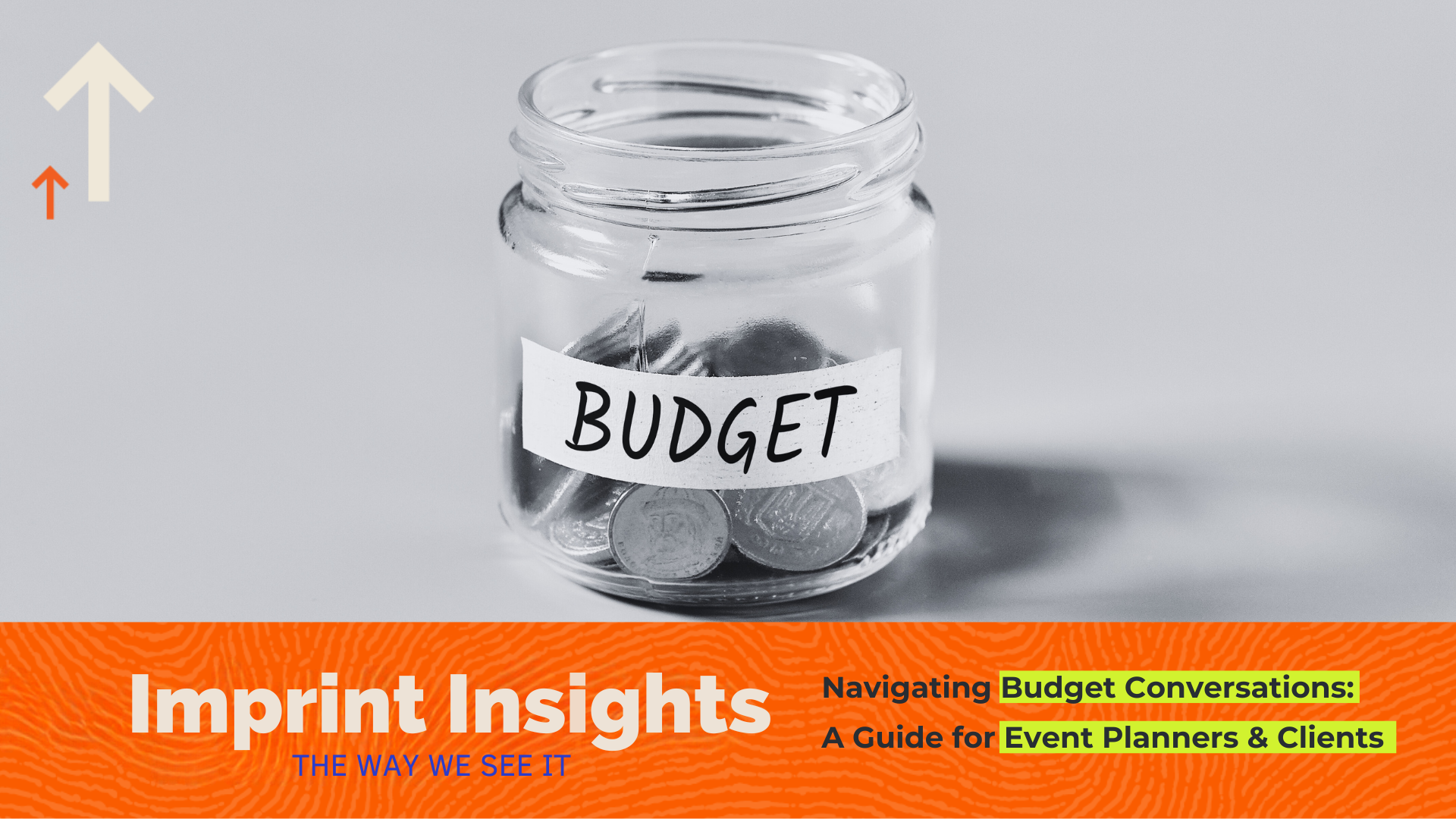Strategic Event Planning: Why Clients Now Demand Purposeful Experiences
Have you ever left an event wondering if science has made advances in time travel so you can get your hours back? The event might not have even been that bad–maybe it had great keynote speakers, unique networking opportunities, or even a fun happy hour–but you left feeling like your time could’ve been better spent at your desk. What was missing? At Imprint, we know the answer is that the event was missing its purpose: its ‘why,’ its goal, and its main takeaway. In this article, we will discuss how the shift toward purposeful experiences is shaping the event planning industry and how you can get it right at your events.
The Shift Toward Meaning-Driven Events
Event attendees today expect more from events than just entertainment—they want experiences that resonate with their values and create a sense of purpose. Guests are looking for events that go beyond surface-level fun to offer deeper engagement and personal relevance. They seek meaningful human connections and want to feel that their participation is part of something bigger. This shift in expectations challenges event planners to design experiences that not only entertain but also align with the values and aspirations of their audience.
The lasting outcome of such a poignant event is the ongoing emotional engagement. This emotional engagement builds stronger brand loyalty, as attendees are more likely to support and advocate for organizations that share their principles. Moreover, when an event leaves a lasting, meaningful impression, attendees are more inclined to share their experience with others, resulting in word-of-mouth promotion that can extend the event’s reach far beyond its initial audience.
Key Elements of Purposeful Event Design
Being strategic in your event planning and execution means creating curated content–content that is relevant, interesting, and meaningful to your audience. The goal of curated content reinforces an event's purpose and ensures that every element of the program aligns with the event's core message. Keynote speakers, for example, can set the tone by sharing insights and experiences that resonate with the event’s values or mission, creating a powerful connection with the audience from the start.
Audience involvement is essential for each phase of the event's planning, execution, and aftermath. For example, using LinkedIn to your advertising’s advantage. Create bold, eye-catching social images that attendees can post to announce their attendance before going to the event. During the event, encourage social posting with official hashtags or photo contests. After the event, urge attendees to post their thoughts and tag your group, and in doing so, you’ll receive honest feedback for your post-mortem meetings.
Integrating Technology for Enhanced Engagement
Gone are the days when missing an in-person event meant missing out. Virtual and hybrid events have been on the rise since the COVID-19 pandemic due to the flexibility and control of how attendees engage with content. Attendees can pick and choose which sessions, speakers, and networking opportunities speak to them based on their personal goals. These sessions will be more relevant to the audience, which in turn will boost their connection to the purpose of the event. Personalized interactions with like-minded attendees will make the experience more relevant and impactful for participants.
This customization fosters deeper emotional engagement, helping attendees feel a personal connection to the event’s message and purpose. In turn, the event's mission becomes more than just an abstract concept seen from the back of a crowded conference room; it becomes an immersive, individualized journey for each participant, enhancing the overall impact and satisfaction.
How can we measure attendees' satisfaction? By collecting data and feedback from interactive tools like mobile apps, live polls, augmented reality (AR), and virtual reality (VR) experiences. Besides using cool technology to enhance your event, these tools allow event planners and organizers to use real-time data to alter and improve the event in the following years.
“We’ve seen firsthand how integrating these technologies helps clients achieve more meaningful engagement,” says an Imprint Events Group representative.
Measuring the Impact on Purposeful Experiences
A successful meaning-driven event isn’t complete without measurable outcomes. Planners must evaluate the impact of their events to understand what resonated most with attendees.
Key metrics for evaluating purpose-driven events include attendee satisfaction, engagement rates, lead generation, and brand awareness. These metrics give planners insights into how well the event resonated and whether it achieved its goals.
It’s essential to combine qualitative and quantitative data when measuring success. Testimonials, feedback surveys, and interviews provide qualitative insights that help contextualize the quantitative data (e.g., attendance rates and social media engagement). Together, these insights paint a complete picture of the event’s impact.
Future Trends in Event Planning: Sustainability and Personalization
What does the future look like for strategic event planning? Based on our research it's sustainability and personalization: eco-friendly events with a personal feel that’s unique to every attendee.
Eco-friendly event practices are now a must, with attendees and clients alike increasingly concerned about their environmental footprint. Planners must consider sustainable practices, such as choosing eco-friendly venues, reducing waste, and incorporating carbon offsetting.
Personalization, as we’ve discussed, is becoming a pillar of event planning. By using data to tailor experiences to individual preferences, planners can create more meaningful connections. From personalized event schedules to individualized communications, attendees expect events to reflect their unique interests and needs.
AI-driven personalization, advanced data analytics, and immersive technologies like AR and VR are shaping the future of events. These tools allow for deeper engagement and more tailored experiences, helping to keep attendees engaged long after the event ends.
“We’ve seen more satisfaction based on our data collection and reviews when the events we’ve planned are centered around the individual,” John Smith, Imprint’s CEO says.
Imprint Can Take Your Events From Plain to Purposeful
At Imprint, we understand the lasting impact on your business from a successful event. Contact us today to begin the conversation.
Relevant posts

Subscribe to Our Blog
Related Posts
.png?width=900&name=When%20to%20Identify%20Assumption%20vs.%20Assertive%20(1200%20x%20628%20px).png)
Identifying and Solving Common Pain Points in Event Planning
-1.png?width=900&name=When%20to%20Identify%20Assumption%20vs.%20Assertive%20(1200%20x%20628%20px)-1.png)
How to Plan for the Following Year in Events Management



